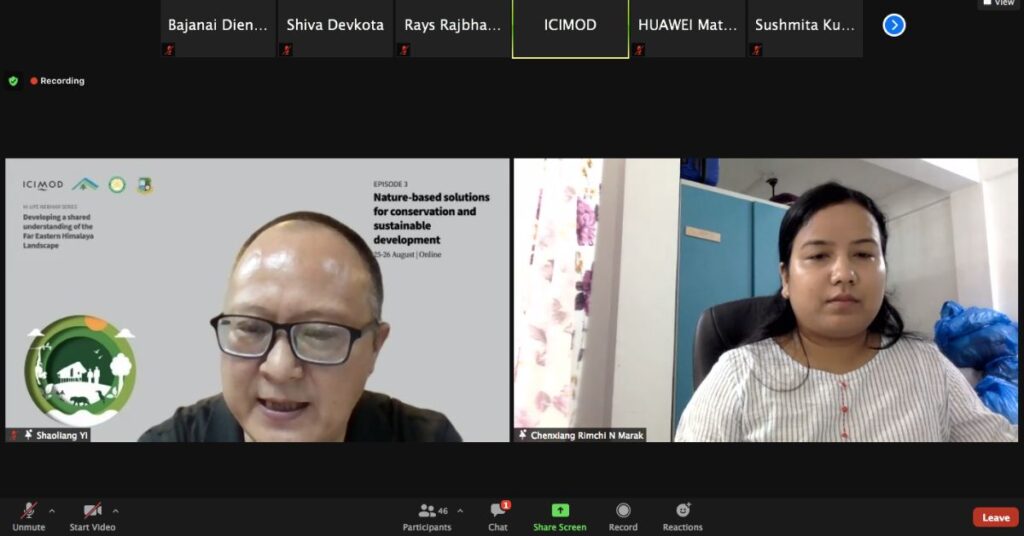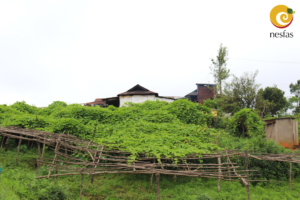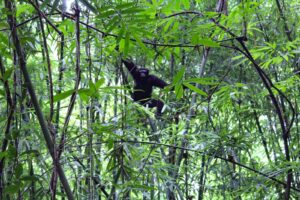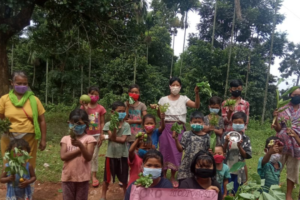An online webinar on developing a shared understanding of the Far Eastern Himalayan Landscape was organized by International Centre for Integrated Mountain Development (ICIMOD) from the 25th – 26th August which focused on nature-based solutions for conservation and sustainable development.
Its main emphasis was to strengthen and widen partnerships and regional cooperation for the conservation and sustainable development. It also aimed to share the current understanding of biodiversity ecosystems in a way to deepen the overall understanding of the landscape.
The webinar also saw the participation of NESFAS’ Senior Associate, Nutrition, Chenxiang Marak, as one of the speakers for the session, “Traditional ethnic cuisine- Natural solution to food, nutrition and health”. She highlighted the resilience of the Indigenous Peoples’ Food Systems (IPFS) as game changing solutions for food and nutrition security. Chenxiang also stressed on the role that NESFAS has played towards defending and strengthening IPFS in Meghalaya.

The event served as a platform for showcasing the strength of the IPFS and traditional knowledge systems of the communities. Chenxiang pointed to a NESFAS study on agrobiodiversity mapping in 32 communities that showed high diversity of crops and wild edibles. It was found that the average number of food plants within these 32 villages of Meghalaya and Nagaland was 202. On another note, the communities source their food crops from forests, kitchen gardens, paddy fields like for example Khweng village which has high access to wild edibles, fish and crab, was pointed out at the seminar. The communities have also been preserving local seeds and practicing seed exchange to strengthen crop diversity. Other ingenious initiatives of NESFAS like the Mei-Ramew (mother earth) cafes have played a key role in promoting traditional cuisine of the regions.
Furthermore she stressed on the innovations, strategies and best practices that have helped in localizing the SDG 1 and 2 in hilly coastal regions.
Chenxiang also mentioned how NESFAS have worked extensively with various schools for the inclusion of different locally sourced ingredients in the Mid-day-Meals programme. This is to ensure that the children are able to meet the required amount of food groups. “We work towards changing the mindset of local communities to appreciate their own local food and try to expand or revive the available food plants that are found in the communities”, she concluded.



